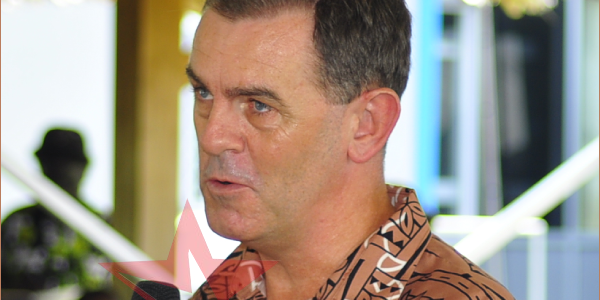FUNDING the Government’s $140 million buy-back scheme of prime land jointly owned by Solomon Levers Ltd (LSL) and Russell Islands Plantation Estate Ltd (RIPEL) has hit a major legal hurdle – thanks to the Commissioner of Lands for exposing the secrecy surrounding the deal.
Commissioner Alan McNeil sharedd insights into the buy-back scheme in a letter he wrote to the Deputy Prime Minister Bradley Tovosia on 30 August.
It follows a request by Minister Tovosia, who subsequently led a government delegation to Brisbane where the buy-back scheme was discussed on Friday 6 September.
Commissioner McNeil’s letter was not copied to anyone else, according to a copy sighted by Solomon Star this week.
In it, he revealed details about the scheme – something the previous DCGA Administration has kept under wrap since the scheme was first approved by Cabinet on 16 July 2020.
The government was planning to raise the $140 million through the sale of treasury bonds to State-Owned Enterprises (SOEs), including the Solomon Islands National Provident Fund (SINPF), Solomon Power and Solomon Ports.
Some of the SOEs – SINPF and Solomon Ports for example – have been approached by the government to lend money.
Solomon Ports, for example, was asked to provide $30 million. Solomon Power and SINPF were requested to provide similar amounts.
It is understood the Board of Solomon Ports has since denied the request, citing Section 71(1-4) of the Public Financial Management Act 2013, which places restriction on the Minister’s authority on such borrowing.
Here is what it says:
Restriction on the Ministers authority to borrow- Public Financial Management Act 2013
Section 71. (1) The Minister shall not borrow money except in accordance with the provisions of an Act or a resolution of the National Parliament.
Section 71(2) The Minister shall not borrow to finance planned budget deficits in the recurrent expenditure;
Section 71(3) The Minister shall only enter into new borrowing for high priority infrastructure and development initiatives in line with the Government’s development and debt policies; and,
(4) Subsection (3) does not apply where short term- borrowing is necessary to deal with exceptional circumstances like a major economic shock or a natural disaster, it says.
One observer summed up the provisions in this way. “Borrowing is only allowed for planned development purposes; the only exception is an emergency.”
One other observer said the Government knew all along about the law prohibiting this kind of borrowing.
The question now is whether these officials and those who approved the initial funding for the scheme would be investigated for wrong doing.
It seems there is only one way open to the government to service the $140 million cooked up by officials in the first place.
By Alfred Sasako









